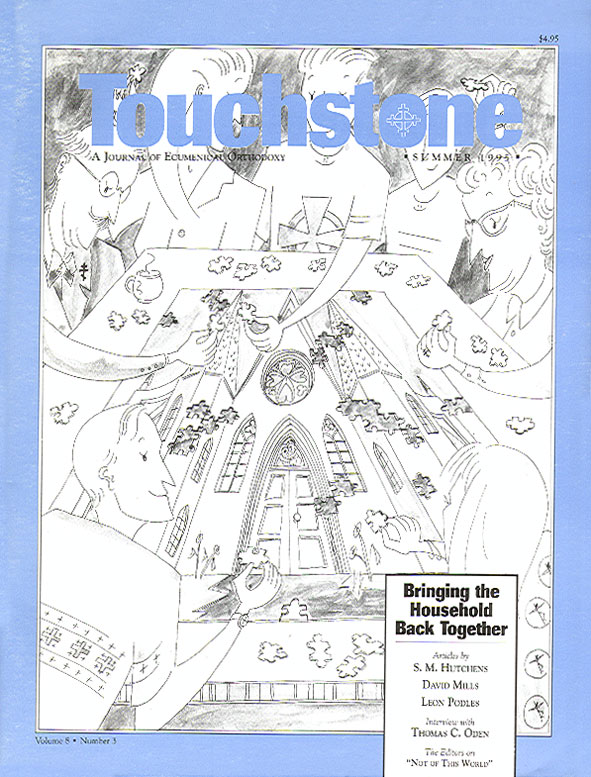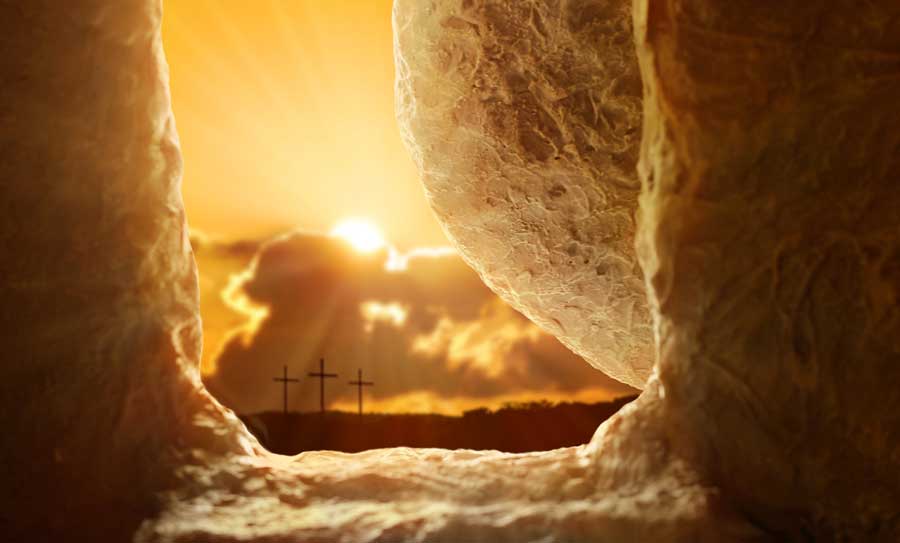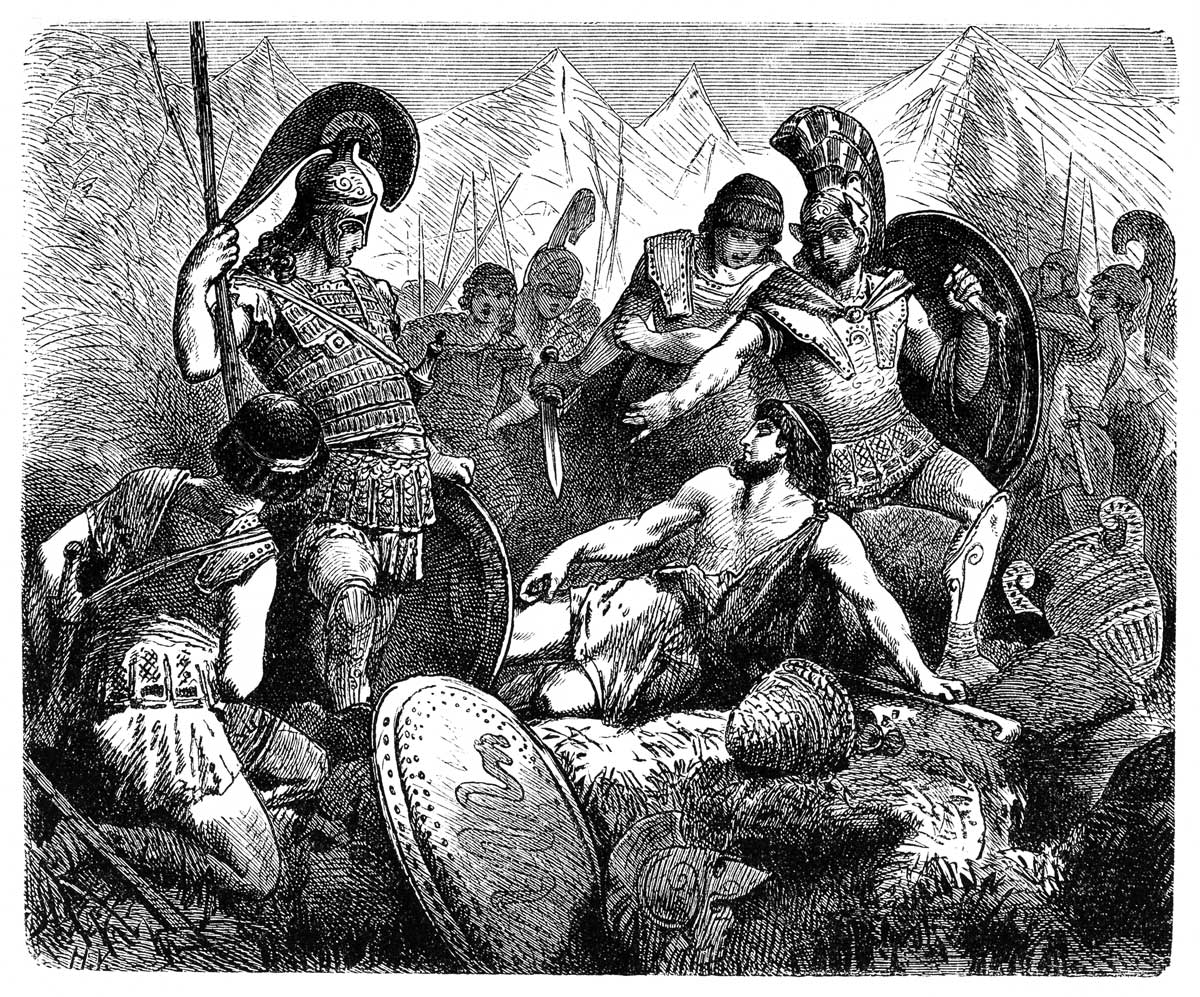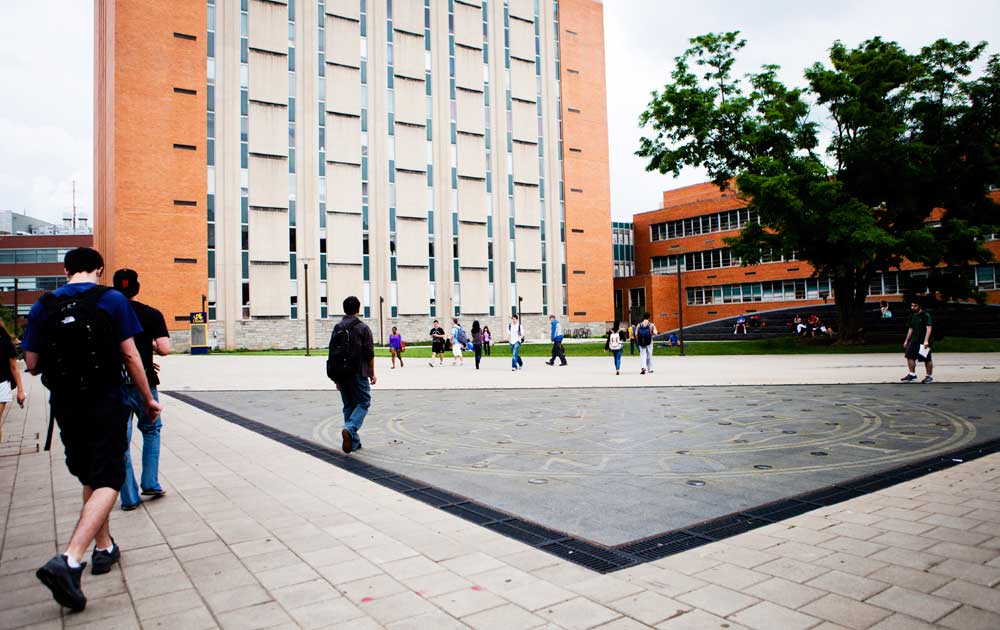All That Separates Must Converge
The Fragmentation of Christianity & the Unity of the Faith
by Leon J. Podles
Pope John Paul II has speculated in his recent bestselling book, Crossing the Threshold of Hope, that the division of the churches may have a purpose in the ways of divine Providence. He put his thoughts in the form of a question in answer to a question about why God has allowed so many divisions in the Church. The pope asks, “Could it not be that these divisions have also been a path continually leading the Church to discover the untold wealth contained in Christ’s Gospel and in the redemption accomplished by Christ? Perhaps all this wealth would not have come to light otherwise. . . .” Generalizing from the human tendency to develop insights separately before integrating them into a higher unity, the pope concludes, “It is necessary for humanity to achieve unity through plurality, to learn to come together in the one Church, even while presenting a plurality of ways of thinking and acting, of cultures and civilizations.”
This dialectic of division and unity is therefore, although sometimes made painful by human sin, essential to understanding the fullness of the gospel. The great division between East and West, between Rome and the Orthodox Churches, and the multiplying divisions in Western Christianity can serve God’s purpose, if they are eventually, if not exactly overcome, but rather transcended by a higher synthesis that preserves the valid although partial perceptions of the truth that each church has developed in isolation from the others.
Although trying to discover the purposes of Providence is always a chancy affair, it is possible to hazard a guess at what might be the beneficial results of the division of the churches. I speak as a Roman Catholic who accepts the primacy of the bishop of Rome and for whom the importance of visible Church unity always is great. The bishop of Rome himself, however, is more than willing to discuss the weaknesses of his church and its serious errors over the centuries.
The greatest division is the one between the East and West; but it is not total. There are some Eastern churches in communion with the bishop of Rome, but the vast bulk of Eastern Christianity is not in communion with Rome, to the point that for almost everyone in the world, Roman Catholic equals the Latin or Western Church. Many Roman Catholics, including priests, as late as the 1950s did not even recognize Maronite or Ukrainian Rite Catholics as Catholics, and denied them Communion. But the Uniate churches and the small Western Rite Orthodox movement do not change the overall picture much: there is a vast gulf between East and West.
What would have been the result for Christianity if the Eastern and Western churches had not divided? Would the Western church have been influenced by the Eastern, or the Eastern by the Western? It would have been a tragedy, as the pope himself would admit, if the Western church, as it developed after the split, had influenced the Eastern church to follow the same path of development as the West.
The development of the Western church has been, if not disastrous, at least a source of endless trouble. It is not clear whether the West took the course it did because it split from the East, or whether it would have taken that course and drawn the East along with it. The characteristic genius (or fault) of the West is to take aspects of Christianity and to develop them as far as possible, even if this development isolates them from the fullness of Christian life. The characteristic genius of the East is to maintain all the elements of Christianity in the original synthesis, even if this means that certain aspects remain undeveloped. The West fragmented the white light of revelation in order to see the colors clearly; the East has maintained the purity of the original light, but does not always distinguish the colors.
In the West, theology split into academic theology and spirituality. The theologian was no longer one who engaged in prayer, in a dialogue with God, after the model of the both Eastern and Western Fathers, but someone who “did theology” in an academic setting. The results of academic theology are impressive. St. Thomas Aquinas’s achievements are undeniable. But already in Aquinas something is missing. The note of prayerful devotion is absent from his theology; it is present in his hymns, but these were already distinct from his theology. In lesser and less saintly figures, the split became total. Roman Catholic theology sometimes almost totally prescinds from belief. Theologians feel no obligation to Church unity and orthodoxy, and the diversity of theologies they espouse is not one of diverse insights into the one faith handed down from the apostles, but new faiths constructed from such rags of Christianity as can be made to appear compatible with current fads and academic preoccupations. Theology can be done by unbelievers as well as by believers, and is consciously designed to be noncommitted, so that it can be academically respectable.
This split has been lamented by Roman Catholic writers of the ressourcement (the attempt to recover the scriptural and patristic wisdom that antedated the Scholastics) who sought to go back to the patristic union of theology and spirituality. Louis Bouyer and Jean Leclerq in their History of Christian Spirituality (1961) diagnose the situation at the end of the Middle Ages, a situation that has continued to the present: “The theologian became a specialist in an autonomous field of knowledge, which he could enter by the use of a technique independent of the witness of his own life, of its personal holiness or sinfulness. The spiritual man, on the other hand, became a dévot who cared nothing for theology, one for whom his own experience ultimately became an end in itself.” This split between theology and devotion allowed each to develop largely in isolation. This development produced impressive specialized products, but at the cost of a living unity of Christian life and thought.
In dogmatic and doctrinal development the magisterium of the Church, which has until very recently been attuned almost totally to Western modes of thought, has continued to isolate and develop individual truths, at the cost of extracting them to some extent from the whole context in which they are intelligible. The proclamations of the Immaculate Conception and of papal infallibility are two examples of this. They are the ones most often cited by the Orthodox and Anglicans as unwarranted additions to the deposit of Faith.
Leon J. Podles holds a Ph.D. in English from the University of Virginia, has worked as a teacher and a federal investigator, and is president of the Crossland Foundation. He is the author of The Church Impotent (Spence), Sacrilege (Crossland Press), and Losing the Good Portion: Why Men Are Alienated from Christianity (St. Augustine Press). Dr. Podles and his wife have six children and live in Baltimore, Maryland. He is a senior editor of Touchstone.
bulk subscriptions
Order Touchstone subscriptions in bulk and save $10 per sub! Each subscription includes 6 issues of Touchstone plus full online access to touchstonemag.com—including archives, videos, and pdf downloads of recent issues for only $29.95 each! Great for churches or study groups.
Transactions will be processed on a secure server.
more on Theology from the online archives
more from the online archives
calling all readers
Please Donate
"There are magazines worth reading but few worth saving . . . Touchstone is just such a magazine."
—Alice von Hildebrand
"Here we do not concede one square millimeter of territory to falsehood, folly, contemporary sentimentality, or fashion. We speak the truth, and let God be our judge. . . . Touchstone is the one committedly Christian conservative journal."
—Anthony Esolen, Touchstone senior editor














